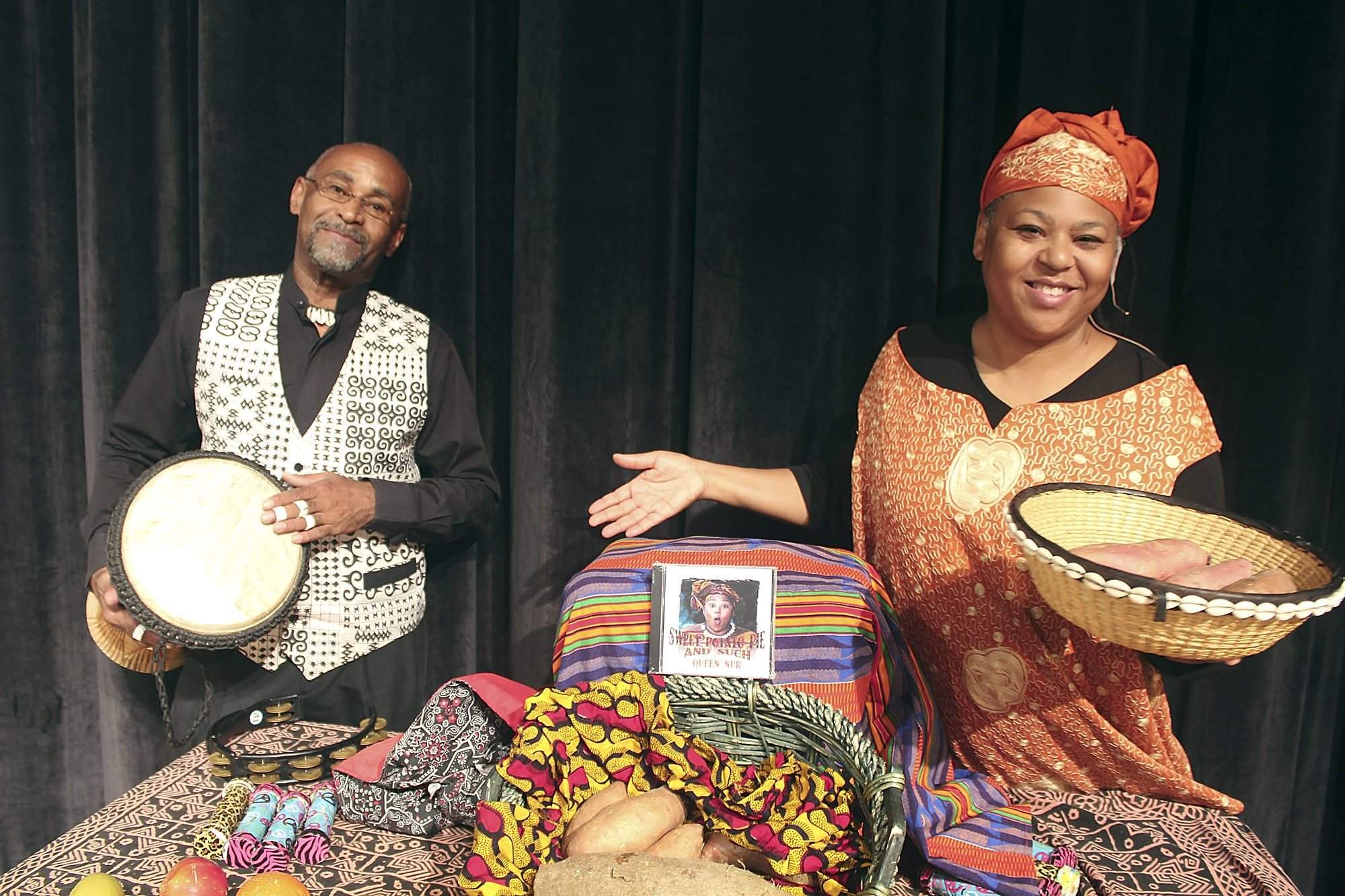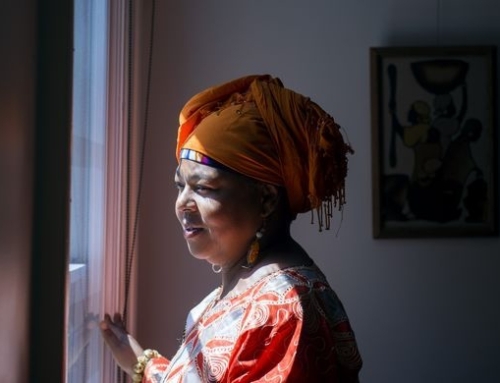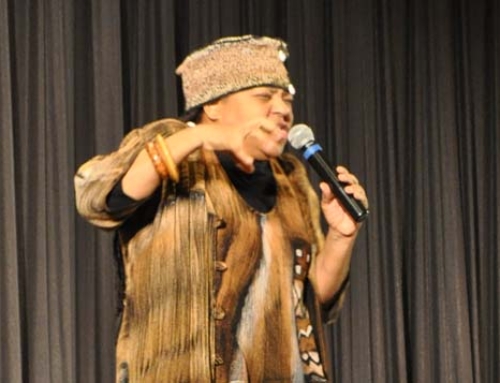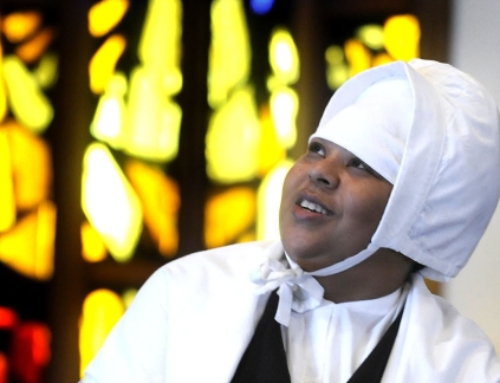By Cara Hedgepeth Staff Writer
For professional storyteller Karen Abdul-Malik, her roles as mother and storyteller are intertwined.
“A storyteller’s life is not separate from family,” Abdul-Malik said. “It wasn’t like I walked out and came back. [My kids] have always been a part of my storytelling life.”
Known professionally as Queen Nur, Abdul-Malik of Willingboro, N.J., will be at the Publick Playhouse on Tuesday for two performances. The programs will focus on the symbols and history of the holiday of Kwanzaa, which honors
African traditions in African-American culture. It’s a similar presentation to the one that got things rolling for Adbul-Mailk more than 20 years ago.
Abdul-Malik was 9 years old when she started writing poetry. She said her father would play back up to her verses with jazz music. Now, Abdul-Malik has three children of her own; two daughters, Coniqua, 31, and Sarai, 24, and a son,
Niles, 26. In the early 1990s, Abdul-Malik read a Kwanzaa story to Sarai’s preschool class and another to Niles’ kindergarten class. A teacher recognized her talent and suggested Abdul-Malik pursue storytelling professionally.
Though she didn’t know much about the art form at the time, Abdul-Malik soon learned about the National Association of Black Storytellers, a group for which she is now president-elect, and attended a storytelling retreat in North Carolina.
“That’s where a lot of the training came from,” Abdul-Malik said.
Among her training, Abdul-Malik said she learned about the purpose of storytelling and role of a storyteller.
“What we do, we’re educating about history. We could use folk tales, Aesop’s Fables, personal tales,” Abdul-Malik said. “When we tell those stories, we’re also passing on lessons of times that have passed … We do it in an entertaining manner so that we pass on … the morals, the culture though stories … Stories are not just to entertain but to pass these principles on.”
Kwanzaa, which was created in 1966 by Mulana Karenga, centers on seven core principles — unity, self-determination, collective work and responsibility, cooperative economics, purpose, creativity and faith. But Abdul-Malik points out it is important to recognize those principles throughout the year.
“It is a communal holiday and those principles are to be lived all year long,” Abdul-Malik said. “We should always work toward unity and knowing ourselves, giving back to our communities together … leaving your communities more beautiful than when we walked in … We should be telling those stories all year long.”
On Tuesday, Abdul-Malik will be backed by her drummer, Philadelphia musician Dwight James. The first show is a morning program for all ages and the second is an afternoon program for the playhouse’s Seniors 60 & Better series.
“They’re very similar,” Abdul-Malik said of the two shows. “The stories might change a little bit … the adult [program] might have more about ancestors. We honor our ancestors during this time …”
Family has remained important for Abdul-Malik. Coniqua was in middle school when she began helping her mother with storytelling research. Sarai is a vocalist and both women help Abdul-Malik with In FACT Inc., Adbul-Malik’s nonprofit organization. In FACT, or Innovative Solutions through Folk, Art, Culture and Tradition, works to “perpetuate and preserve folklife traditions and sustain communities and affect social change.” Abdul-Malike founded the group in 2011. While Coniqua helps with research, Sarai leads the hip-hop and blues workshops for the organization. Niles is serving in Kuwait, but Abdul-Malik said he remains connected to his family and the storytelling tradition through emails and social media.
As the new president for the National Association of Black Storytellers, Abdul-Malik hopes to build partnerships with other national organizations to help a broader audience understand the importance of storytelling. Though she’ll undoubtedly have more administrative responsibility, it’s unlikely Queen Nur will limit her own storytelling.
“It’s like when you become a mother,” Abdul-Malik said. “You’re always a mother. When you become a storyteller, you’re always a storyteller.”













Leave A Comment